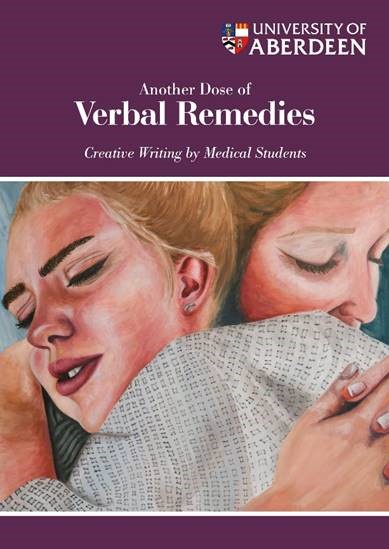Creative Writing and Medicine are not subjects one would automatically associate with one another. The distinct mindsets involved in their respective subjectivity and objectivity, often stands them apart. However, after undertaking a Creative Writing course along with eleven other medical students, I now appreciate that both subjects could enhance the skills of the other. Effective communication, time-management and reflection are just some of these skills.
The Medical Humanities Student Selected Component (SSC) is a valuable feature of the University of Aberdeen’s curriculum. It enables third year students to choose a subject to study for six weeks. Subjects vary from Fine Art to Languages. Writing essays and delivering presentations may be involved. The range of skills gained through Medical Humanities, therefore, is invaluable. Although the skills may differ between subjects, an area of commonality is that each student is removed from scientific-based learning and is immersed in a self-directed environment with a unique viewpoint of medicine.
The Creative Writing course involved attending workshop-style seminars and writing pieces of work to share with the group. At the start of Humanities, our group expressed an enthusiasm to develop our writing skills, which a busy course such as Medicine can leave little time for. Therefore, six weeks dedicated to writing was a real privilege.
While getting creative juices flowing comes naturally to some, swapping a stethoscope for a pencil may be a challenging prospect for others. We soon realised though, that the prompts from our tutor during each seminar were catalysts to ease any writers’ block, but also general enough for us to conjure up original ideas. ‘Personal Experience’ was the first focal point. It enabled us to reflect on and utilise our current skills. It was surprising and motivating to see how much could be written between seminars. The second topic was ‘Narrative voice and Dialogue’, a thought-provoking section. I realised that very valuable character information can be elicited through not only dialect and vocabulary, but also the way actions are performed. At this point in the course, I learned that writing from a new perspective or rearranging the paragraph order can significantly enhance the writing’s message. ‘Exploring the Unfamiliar’ allowed us to describe experiences or places that others may not be accustomed to. This improved our judgment on whether jargon should be explained or left to the reader to infer. We drew comparisons with ‘familiar’ experiences and reflected on our insight into different cultures or social classes.
Discussions during seminars were fuelled by the diversity of the pieces, regarding not only literary techniques, but also the inspiration behind the writing and themes conveyed. Sharing and receiving constructive feedback from our tutor and each other was an invaluable part of this course. It helped us analyse which techniques worked, write more concisely and clarify any ambiguity, to create an impact.
For many of us, the creativity of this course was an unfamiliar territory. However, the challenge has undoubtedly granted us with an enriching personal experience, inspiration to continue writing and skillsets that can be utilised with a different and perhaps more holistic perspective of healthcare.


